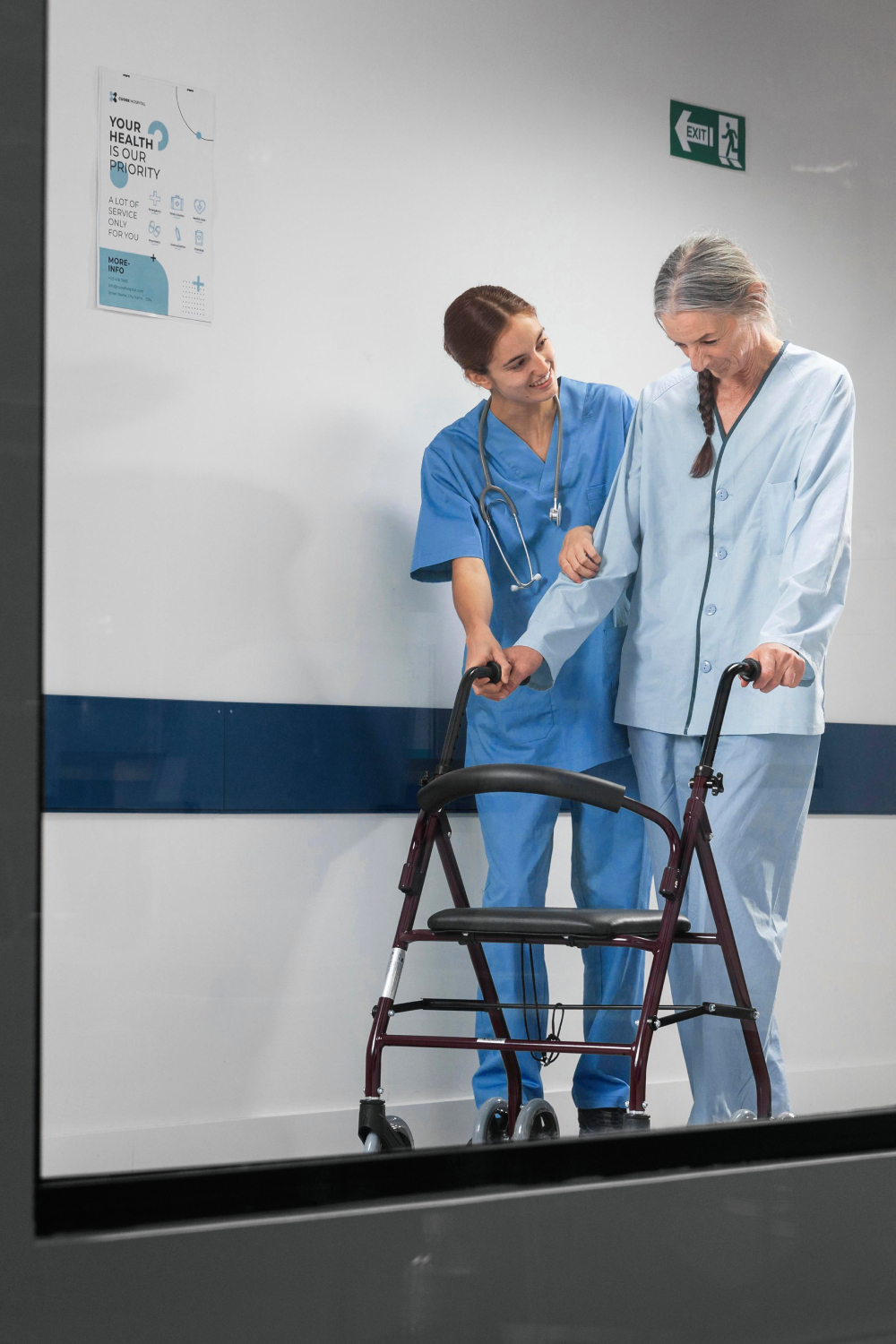There is no single medical profile that guarantees eligibility. We evaluate a combination of risk factors. The process is intentionally broad to account for diverse needs, but that also creates gray areas, and patient expectations aren’t always aligned with the criteria.
Common issues include:
— Patients who downplay symptoms because they don’t want to be a burden
— Patients who once qualified, but whose condition has improved
— Patients who rely on family for transport but are suddenly without help
In some cases, we’re required to ask about weight, ability to walk unaided, or end-of-life preferences such as Do Not Resuscitate status. These are deeply personal topics. We know that every question must be phrased with care and every answer evaluated with empathy.
Our agents are not medical professionals, yet they’re asked to make real-time judgments that affect someone’s ability to access care. The agents follow strict guidelines, but each call still requires critical thinking and emotional intelligence.
Balancing Empathy and Eligibility in Patient Transport Support
The client is a UK-based provider of non-emergency patient transport services. With multiple NHS contracts across hospitals, clinics, and care networks, the client ensures that patients who cannot travel independently due to severe health conditions receive access to essential healthcare services. For these patients, reliable transport is a matter of dignity and access.


Key details
-
Our role
We operate as the client’s contact center team, managing the full customer support journey across both inbound and outbound channels. This includes:
— Booking non-emergency transport for patients
— Handling incoming calls and email requests
— Confirming journey details via outbound call or follow-up
— Managing cancellations or changes to existing bookings
— Receiving redirected calls from the AI confirmation system
— Coordinating transport support for NHS staff, often during night shifts -
Who are the people we speak to?
Most calls are from elderly patients, often with complex medical histories, or from someone acting on their behalf (a relative, neighbor, nurse, etc.).
The people we support are not just booking a ride. Many face mobility issues, live alone, or are managing chronic illnesses. What they have in common is a real need for support and a system that requires them to prove it. -
The challenge: Enforcing boundaries with empathy
The most difficult and emotionally demanding part of our work is determining eligibility. Because the service is publicly funded by the National Health Service, transport can only be provided to those who meet defined criteria. Our job is to assess each case against those criteria based on what the caller tells us.
This puts agents in a delicate position. Every day, they ask highly personal questions about mobility, medical equipment, mental health risks, and sometimes deny requests to people who sound like they genuinely need help.
These questions are essential, but they often feel invasive to the patient. When eligibility is denied, the response may be confusion, frustration, or distress. Our agents remain calm, kind, and consistent even when patients become upset or emotional.

What makes eligibility complex and nuanced?
How we ensure empathy during eligibility checks
Every agent is trained to listen for nuance, avoid assumptions, and guide the patient through difficult questions without creating shame or pressure.
Here’s how we support that:
A consistent call flow
Ensures professionalism without sounding robotic
Real-time coaching
Team leads provide hands-on support during challenging calls
Clear escalation paths
Borderline or complex cases are reviewed together
Continuous training
Includes language skills, medical terminology, and safeguarding
Client collaboration
We work closely with the client to adapt workflows and improve the patient experience

The outcome
By combining structured support with emotional intelligence, we’ve built a system that protects public resources without dehumanizing the people who rely on them. Every agent is empowered to listen, clarify, and reassure, and every call is another opportunity to show that empathy and accountability can—and should—coexist.
-
🇬🇧
Language of service
-
16
Agents on the line
-
6,000
Monthly calls processed
-
93.9%
Quality score
Achievements
-
- Handled approximately 6,000 calls in a month while maintaining an 85% answer rate.
- Maintained an average wait time of 81 seconds, keeping queues within service expectations.
- Increased quality score from 90.2% to 93.9% in a month by reducing errors and improving consistency.
- Rolled out personalized coaching plans for each agent to support development and align with operational goals.
- Adapted quickly to new technology by managing calls redirected from AI-powered reminders, ensuring elderly patients receive personal attention and never feel overlooked or confused by automation.


Get fast answers to any remaining questions
Thank you.
Your request has been sent successfully.
Your request has been sent successfully.


